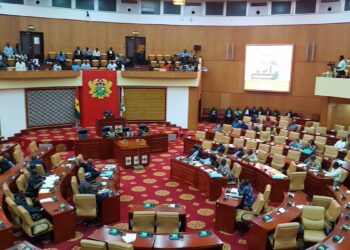Nigeria’s crypto scene has faced significant challenges since February 2024. It all began when authorities blocked access to local crypto exchanges, leaving traders uncertain and stuck with their investments. Tensions escalated further when two Binance executives, visiting Nigeria to address tax issues, were detained by local law enforcement authorities.
By April, the situation deteriorated. Four major fintech companies were barred from onboarding new customers due to their involvement in crypto trading. Over 1,100 bank accounts linked to crypto activities were frozen, and authorities accused crypto traders of serious crimes, including foreign exchange racketeering, currency manipulation, money laundering, and even financing terrorism.
The government took another drastic step in May by banning peer-to-peer (P2P) cryptocurrency trading in the Naira. Officials justified the move by citing concerns over market manipulation and the adverse impact of P2P trading on the Naira’s exchange rate. Nigeria’s National Security Adviser publicly declared crypto trading a national security threat.
However, recent developments suggest a shift in attitude. In May, the government appointed Emomotimi Agama, a well-known crypto enthusiast, as the new Director General of its securities regulator, the Securities Exchange Commission (SEC). In August, the regulator issued its first official licenses to two crypto exchanges, Busha and Quidax.
These actions indicate that the government may now be willing to support the growth of the crypto ecosystem while ensuring appropriate regulation.
What’s Driving This Change of Heart?
The Nigerian government appears to have accepted the widespread adoption of cryptocurrencies among its citizens. According to a report from Chainalysis, the country had the second-highest crypto adoption rate globally in 2023, trailing only India. Between July 2023 and June 2024, Nigerians received about $59 billion in cryptocurrency, making Nigeria the leader in Sub-Saharan Africa for crypto activity. Notably, 85% of this value came from small transactions involving less than $1 million.
Given this growing interest, the government is likely looking to capitalize on the crypto market as a potential revenue source. The Federal Inland Revenue Service (FIRS) recently announced plans to introduce a bill to tax the crypto industry.
The government can collect taxes on crypto transactions, profits, and businesses by formalizing the crypto market. This not only legitimizes crypto trading but also provides a financial boost for the government at a time when Nigeria is grappling with severe economic challenges, including soaring inflation and currency devaluation.
Another key driver is the government’s need to restore investor confidence. With the Naira losing 55% of its value against the US dollar in 2023 and more than half its value since the beginning of 2024, attracting investments is critical for economic recovery. The Naira, which opened at N907.11 per dollar in January, had depreciated to over N1,500 per dollar by October. A more welcoming stance toward crypto businesses signals to both foreign and local investors that Nigeria is open for business and ready to embrace innovative technologies.
A Complex Shift
While these developments are encouraging, the government’s shifting stance is not without complications. Increased oversight could bring legitimacy to the market but might also raise privacy concerns among users. If exchanges are compelled to disclose client data, it could alienate individuals who value the privacy and decentralization that crypto offers. Such measures might drive some crypto activities underground, where they become harder to regulate.
The detainment of Binance executives earlier this year for refusing to share client data with authorities has already set a negative precedent. Though the charges have been dropped, the incident doesn’t portray the country well to foreign investors and businesses. The country’s government must do a lot to repair its reputation.
RELATED:
By licensing exchanges like Busha and Quidax, the government gains a foothold in the market while ensuring greater control. Licensed exchanges are more likely to cooperate with authorities, providing them access to data that enhances oversight and compliance. However, striking a balance between regulation and user privacy will be critical to maintaining trust in the system.
How Nigeria’s New Crypto Stance Could Help its Economy
With the Naira’s value plummeting, Nigeria needs to attract more investments to stabilize its economy. Recognizing crypto businesses and introducing clear taxation policies can legitimise the sector, encouraging local and foreign investors to inject capital into the country. This influx of investment could boost Nigeria’s economic recovery.
The government’s softened stance on crypto could also help ease public frustration. Many Nigerians, burdened by rising living costs and inflation, view cryptocurrencies as a financial lifeline. Protests against economic hardship have highlighted the public’s discontent. Engaging positively with the crypto community allows the government to present itself as more responsive to citizens’ needs, potentially improving its public image.
However, the shift toward crypto presents both opportunities and challenges. On the one hand, it could attract investment, create jobs, and enhance financial inclusion. On the other, poor implementation of regulations or excessive government interference could stifle innovation and drive investors away.
Final Thoughts
If managed effectively, Nigeria’s shift towards cryptocurrency could rejuvenate its faltering economy. Creating a transparent and supportive atmosphere for crypto businesses could also enable the government to address some of its most pressing challenges—attracting investments and improving financial inclusion––and position Nigeria as a frontrunner in Africa’s digital economy.
This shift could also serve as a model for other nations in the region, demonstrating that embracing crypto can be a viable strategy for economic growth—once again, provided it is managed well. Nigeria now stands at a crossroads, and how it handles this transition will determine whether the crypto market becomes a national asset or a missed opportunity.
Disclaimer: This article is intended solely for informational purposes and should not be considered trading or investment advice. Nothing herein should be construed as financial, legal, or tax advice. Trading or investing in cryptocurrencies carries a considerable risk of financial loss. Always conduct due diligence.
If you want to read more market analyses like this one, visit DeFi Planet and follow us on Twitter, LinkedIn, Facebook, Instagram, and the CoinMarketCap Community.
Take control of your crypto portfolio with MARKETS PRO, DeFi Planet’s suite of analytics tools.”





















